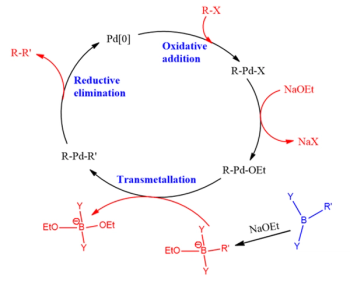
- The Column-04-09-2019
- Volume 15
- Issue 4
The 5th Workshop on Analytical Metabolomics
The “5th Workshop on Analytical Metabolomics” will be held in Thessaloniki, Greece, from the 13–17 May 2019. Here is a sneak preview of what attendees can look forward to.
The “5th Workshop on Analytical Metabolomics” will be held in Thessaloniki, Greece, from the 13–17 May 2019. Here is a sneak preview of what attendees can look forward to.
The 5th Workshop on Analytical Metabolomics is the continuation of successful meetings held in Thessaloniki in 2008 and 2016, Athens in 2012, and Patras in 2014. Past meetings featured worldârenowned invited speakers from academia, industry, and the regulators advocating and debating on the application of holistic analytical approaches in biomarker discovery in life, plant, and food sciences. The organizers plan to bring the same high level of lectures to further promote knowledge in this upcoming field. Registration has now opened.
The 5th Workshop on Analytical Metabolomics is a leading workshop where the main focus of discussion will be the potential and benefits of applying metabolomics and foodomics research. The workshop will provide a rich forum for fundamentals and applications of analytical metabolomics and mass spectrometry (MS). This is an important meeting to attend to learn the newest cutting-edge analytical technologies for metabolic profiling in liquid chromatography (LC)–MS, gas chromatography (GC)–MS, and nuclear magnetic resonance (NMR) spectroscopy, with applications to biomarker discovery in cardiovascular disease (CVD), physical exercise and activity, neonate health, and other conditions. This year the focus is on food authenticity and geographical origin. Emphasis will be given to informatics, chemometrics, and validation, with the latest real-life applications from pioneers in the field of multivariate analysis (MVA) as a statistical tool in biomarker discovery and workflows.
Attendees can network with worldârenowned researchers in metabolomics and share their research through oral and poster presentations.
The workshop is organized as a three-day hands-on course (13–15 May at Aristotle University Interdisciplinary Research Centre) that will accommodate up to 12 researchers on a first-come, first-served basis, and will provide exposure to technology, live interaction, and experimental training in small groups through tutorial sessions to promote an in-depth understanding of theory and practice. These courses will be taught by leading experts and instructors; participants of any level can expect to gain new or increase existing understanding in these key areas of bioanalytical metabolomics.
A mini-conference will follow at the Aristotle University Research Dissemination Centre (http://kedea.rc.auth.gr/) from 16–17 May. Developments in analytical methods and data treatment strategies and tools will be illustrated. Data treatment software will be shown in live sessions. The new FoodOmicsGR Research Infrastructure (http://biomic.web.auth.gr/foodomicsgr-research-infrastructure/) will be presented, and collaboration potential will be investigated. The scope is to generate discussion and interaction among the participants.
The 5th Workshop on Analytical Metabolomics is the place to follow the state-of-the-art in the development of new techniques and life applications of metabolomics. Plenary speakers include:
Ian Wilson (Imperial College London, UK), who will be speaking on the development of disease biomarker discovery; George Nychas (Agricultural University of Athens, Greece), who will be speaking about metabolomics and food microbiology; Michael Witting (Helmholtz Zentrum Munich, Germany), who will speak about metabolite identification strategies; Georgios Theodoridis (Aristotle University of Thessaloniki), who will give a detailed overview of the current status of metabolomics, the latest innovations, and limitations; Panos Vorkas (Imperial College London), who will give a presentation of CVD lipidomics biomarkers; Filippos Michopoulos (AstraZeneca, UK), who will describe ion pair chromatrography MS/MS approaches for the quantitative analysis of a large number of endogenous metabolites; Pietro Franceschi (FEM Trento, Italy), who will present data pre-processing tools; Fulvio Mattivi (Trento University, Italy), who will describe metabolomics characterization of wine and fruit; and Torbjörn Lundstedt (AcureOmics AB, Sweden), who will present personalized theranostics.
Tel.: +302310997718 +302310996224
E-mail:
Website:
Articles in this issue
almost 7 years ago
Vol 15 No 4 The Column April 2019 Europe & Asia PDFalmost 7 years ago
Vol 15 No 4 The Column April 2019 North American PDFalmost 7 years ago
The Role of Chromatography in Entomotoxicologyalmost 7 years ago
House of Lords Calls on UK Government to Secure Science Fundingalmost 7 years ago
Shimadzu Employees Plant Many Treesalmost 7 years ago
Restek and LECO Expand Collaborationalmost 7 years ago
The Rise of the Robotsalmost 7 years ago
Tips & Tricks GPC/SEC: Column Issues with Light Scattering DetectorsNewsletter
Join the global community of analytical scientists who trust LCGC for insights on the latest techniques, trends, and expert solutions in chromatography.




